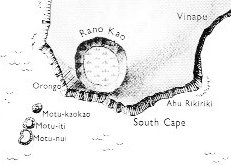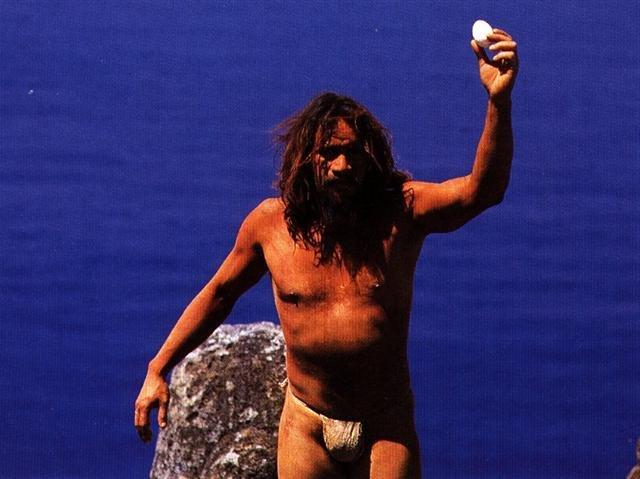Ba5.2 Once again. Perhaps this picture of Ouroboros was created in order to explain why 3 days were missing - they had been swallowed by himself:
This idea can be compared to the Chinese 3 nights of eating cold food: ... In China, every year about the beginning of April, certain officials called Sz'hŁen used of old to go about the country armed with wooden clappers. Their business was to summon the people and command them to put out every fire. This was the beginning of the season called Han-shih-tsieh, or 'eating of cold food'. For three days all household fires remained extinct as a preparation for the solemn renewal of the fire, which took place on the fifth or sixth day after the winter solstice [Sic!] ... And kai viri, kai viri at the 3 handsome sons of Te Taanga can also be explained similarly, because the essential idea of kai is to eat.
Kaiga. 1. Action of eating; meal; nourishment (katiga was the ancient word). 2. Ground; country; island. 3. Womb, uterus (also matakao). Vanaga. Land, country, place, region, estate, soil; noho kaiga, indigenous, a native of; mau kaiga, proprietor; hooa te kaiga, to buy land. T Pau.: kaiga, the soil. Mgv.: kaiga, land, country, property, the earth, the world. Mq.: kaina, kaika, residence, property, patrimony. Ta.: aiŠ, place of residence. Churchill. Kaihaga. To abstain from. Mq.: Ši, lack, dearth, privation. Churchill. For although warm food was not present, could not be seen, it would still be remembered, always be kept in living memory and 'not forgotten'. Only twice was mentioned kai viri, perhaps because 3 times (Trismegisthos) would have suggested warm food. ... The ancient Chinese said: One generates Two, Two generates Three, and Three generates Everything. I.e., before the invention of the alphabet - ABC - there was 123. But we have forgotten. ... Most ingenious Thoth, said the god and king Thamus, one man has the ability to beget arts, but the ability to judge of their usefulness or harmfulness to their users belongs to another; and now you, who are the father of letters, have been led by your affection to ascribe to them a power the opposite of that which they really possess. For this invention will produce forgetfulness in the minds of those who learn to use it, because they will not practise their memory. Their trust in writing, produced by external characters which are no part of themselves, will discourage the use of their own memory within them. You have invented an elixir not of memory, but of reminding; and you offer your pupils the appearance of wisdom, not true wisdom, for they will read many things without instruction and will therefore seem to know many things, when they are for the most part ignorant and hard to get along with, since they are not wise, but only appear wise ... Anciently memory secured a fundamental stability and a common sense. How else would people be able to work together? Therefore we can rely on what can be perceived as common signs to basically also mean that there is something in common. However, there is an obstacle for us modern western minds, viz. our untrained eye - unable to perceive such fundamentals. There was a resemblance between the 3 prominent outside crests on the head of Ouroboros and Nga kope ririva tutuu vai a te taanga.te ingoa o te motu ena etoru.
Outside the southwestern corner of the mainland of Easter Island there were 3 prominent extra 'persons' standing out there in the water. Here the new year was generated.
We should also here note the possibility of a correspondence with e ihe ka pipiri i te henua:
In the Q text this part of the parallel description has been left outside, omitted but hardly forgotten.
|
||||||||||||||||||||||||||||||||||||||||||||||||||||||||||||||||||||||||







